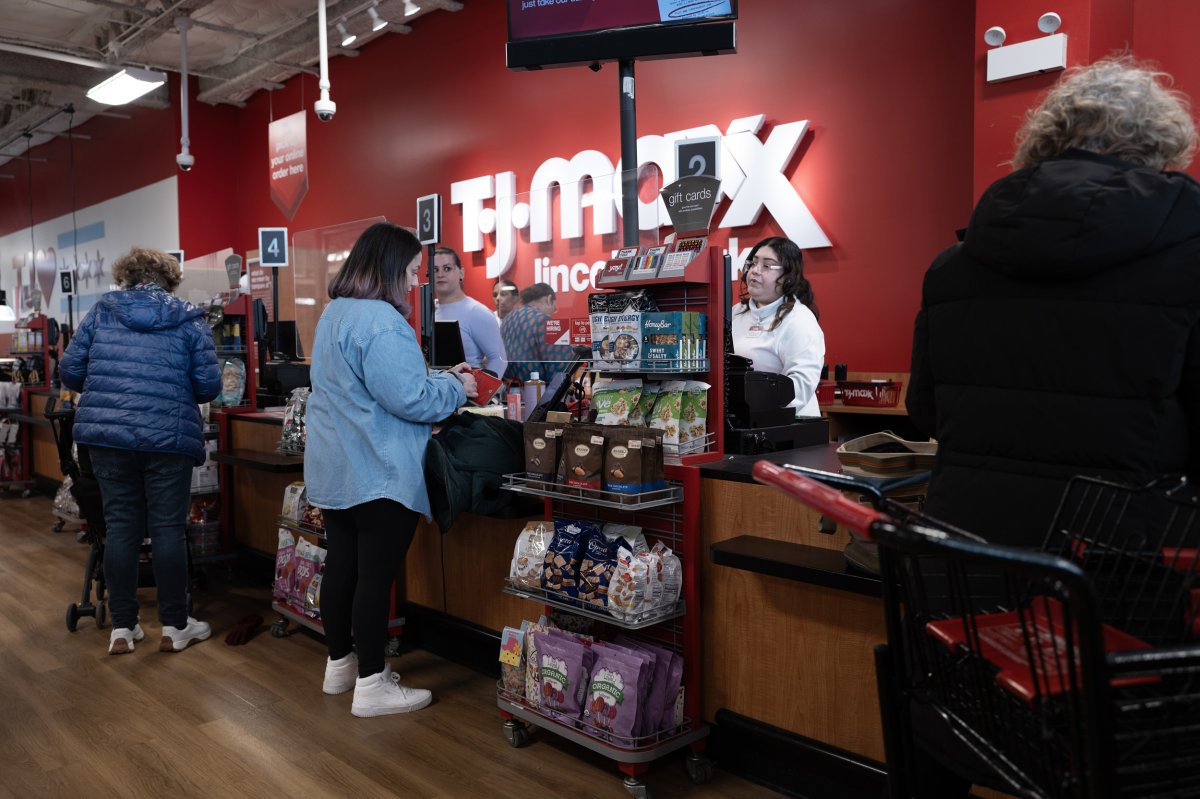Americans are saving less at their lowest pace in more than a year, and are apparently spending more than the growth of their incomes, according to an analysis by Wells Fargo that was shared with Newsweek.
In February, the personal savings rate hit 3.6 percent, "marking the lowest rate at which households saved in 14 months," Wells Fargo economists noted in the Thursday report, adding that spending outpaced income growth for the month. The savings rate is higher than the below 3 percent level it fell to following the COVID-19 pandemic, but is nevertheless way down from the pre-pandemic rate of 6 percent.
Read more: The Best Types of Savings Accounts to Earn Interest
In its analysis, Wells Fargo pointed out that the personal savings rate was calculated from looking at personal savings as a share of disposable income. The bank's economists suggest that consumers slowing their savings rate may not translate to a decline in spending.
"Households have proved time-and-time again that they are willing to pull out all the stops to keep spending; simply saving less on a monthly basis being one of them," they noted.
But savings can put consumers in a stronger position for when they want to purchase more expensive products and can mitigate against economic shocks.
"Just as a well-stocked pantry can get a household through between trips to the market, a sufficient balance in the savings account helps support larger outlays, whether on purchases of consumer durables or property, and it helps shore up the financial health of households generally," Wells Fargo analysts said.
Americans had saved substantially during COVID amid stay-at-home orders and lockdowns which limited their ability to spend. Those savings have helped prop up what households are able to still save post-pandemic.
Wells Fargo analysts say that wealthy and less wealthy consumers are still able to spend, but those in the income bracket below that may begin to feel the pinch.
They cited Federal Reserve Bank of New York data that point to delinquency rates rising among young and low-income Americans as evidence that low-income consumers are spending more than they are able to save, or even afford.

Meanwhile, another data point from Moody Analytics suggests that some low-income consumers' savings rate has been negative for about two years.
Read more: Average Savings Account Rates
"[It] implies they are spending more than they are bringing in each month in the form of income," Wells Fargo economists noted.
A decline in spending has implications for the economy. A stronger-than expected U.S. economy has been powered by American consumers willing to travel, go out to dinners and pay for Taylor Swift and Beyoncé concerts despite an environment of high interest rates and elevated inflation. Should households cool their spending, it could impact the economy, not to mention lead them to more precarious personal financial conditions.
"A lower saving rate is problematic in that it suggests households may be spending today at the expense of tomorrow. Extra liquidity was a key factor in helping the economy stave off economic contraction in recent years," Wells Fargo analysts pointed out.
They also say households dipping into their savings to support their spending may explain why some Americans may be feeling uncertain about the economy.
"Wealthy households may be able to sustain aggregate spending, but the drawdown in savings by other income groups suggests wobbly fundamentals and may explain why broad measures of consumer sentiment remain mediocre even as spending soars," Wells Fargo analysts said.
Uncommon Knowledge
Newsweek is committed to challenging conventional wisdom and finding connections in the search for common ground.
Newsweek is committed to challenging conventional wisdom and finding connections in the search for common ground.
About the writer
Omar Mohammed is a Newsweek reporter based in the Greater Boston area. His focus is reporting on the Economy and ... Read more
To read how Newsweek uses AI as a newsroom tool, Click here.






